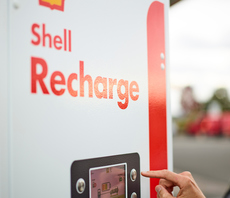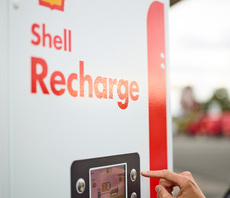‘Decarbonising mobility’: Shell tips EVs, collaboration, and biofuels for key role in slashing road transport emissions


A new report finds that obstacles to EV adoption accelerate the need for other decarbonisation solutions
Electric vehicles (EV) are set to play a crucial role in decarbonising the mobility sector, but a number of policy and infrastructure obstacles could slow the adoption of zero emission vehicles unless urgent action is taken.
That is according to a new report from Shell on how the mobility sector, which reiterates the oil and gas giant’s growing interest in the fast-expanding EV infrastructure market.
Titled Decarbonising mobility: together we drive change, the report is based on responses from a survey of 5,000 motoring consumers and around 50 mobility experts from around the world carried out by consultants Frost & Sullivan.
The report concludes there is a “global consensus” that EVs will play a key role in decarbonisation, although it also reveals that range anxiety, inadequate charging infrastructure, and a limited choice of van models may hamper uptake over the coming years.
The report concludes that government and industry will have to collaborate to drive faster decarbonisation across the mobility sector. It also argues that other solutions such as using biofuels, might have an important role to play in countries where the roll out of EVs is likely to be slowed by reduced grid capacity and unstable electricity supplies.
Shell also argues that biofuels will likely have a major role to play in cutting transport emissions over the course of the current decade. The survey found that while sales of EVs are soaring, 40 per cent of customers around the world are still considering buying an internal combustion engine (ICE) vehicle in the next three years, compared to 36 per cent considering hybrid, and 24 per cent considering electric. The report notes that as such efforts to improve the efficiency and emissions of ICE vehicles should be regarded as a key part of transport decarbonisation efforts.
“By capturing the thinking of both the industry and consumers, and by identifying key themes for the future of mobility, we believe this report will help businesses, consumers and governments support one another more effectively on the road to net zero,” said István Kapitány, executive vice president of Shell Mobility.
The report also points to significant pent up demand for zero and low emission vehicles. The survey found consumers are showing a growing interest in reducing their environmental impact, with 37 per cent rating carbon emissions and 43 per cent rating fuel consumption as important factors when choosing a new vehicle. An overwhelming majority of consumers – 88 per cent – said they would be interested in learning more about the emissions of private and public forms of transport.
Shell also acknowledges that the sector as a whole has made greater progress in decarbonising than had been previously expected. A report from the Society of Motor Manufacturers and Traders this week found that the sale of EVs in the UK has more than doubled since November last year. As such, more than a quarter of the market is now dominated by electric models. The same report, however, warned a lack of charging infrastructure risks constraining the uptake of EVs, finding that just one public charger was installed for every 52 new EVs registered over the past year.
Shell’s report also looks into the potential for ride-hailing and car-sharing as solutions as a means of decarbonising the road transport sector, and finds that the transition to a sharing economy could reduce the overall number of cars on the road. Until this happens, however, ride hailing actually contributes greater emissions than personal vehicle use owing to the time the engine is running between rides.
In similar findings, a report published earlier this week by Green Alliance argues that traffic management is vital to achieving the UK’s climate goals, in addition to the uptake of EVs. The report details how the UK is unlikely to meet its emissions targets for 2030 without a reduction in overall traffic, as well as a rapid switch to EVs. As such it recommends policymakers should better support local authorities to improve walking and cycling facilities and invest in public transport to help reduce traffic levels and slash emissions from cars.








